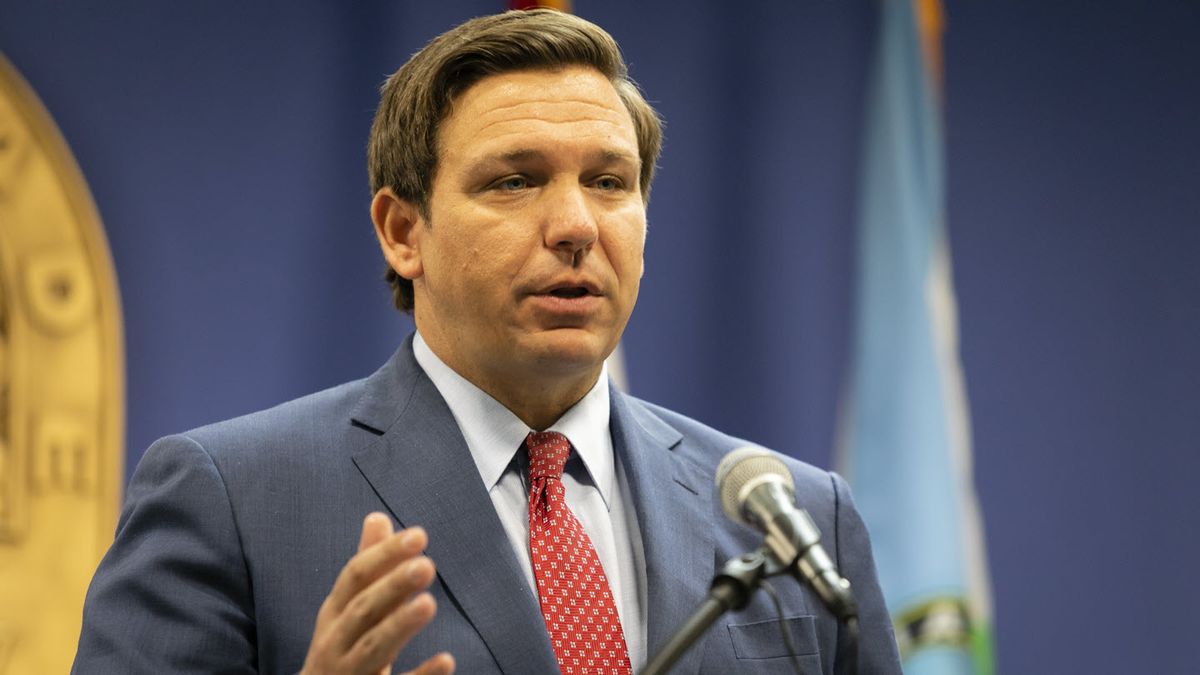Florida GOP Deregulates Nursing Homes
Florida’s Republican politicians are shielding their campaign donors from liability while chipping away at safety standards for elderly residents.

This past legislative session, Florida Gov. Ron DeSantis and his fellow Republican lawmakers delivered multiple legislative handouts to the nursing home industry. That included extending protections for these companies from COVID-19-related liability lawsuits, as well as reducing the amount of resident care the facilities are required to provide to residents.
The legislation came in the wake of the nursing home industry donating hundreds of thousands of dollars to DeSantis and the Florida Republican Party in recent years.
The results of these bills could be devastating in a state where nursing homes are already chronically understaffed. In the past year alone, 29 of Florida’s 691 licensed nursing homes were flagged by the state for not abiding by the moratorium on accepting new patients when they failed to meet minimum staffing requirements for two days straight, according to reporting by Florida Politics.
Just last month, Florida’s Agency for Health Care Administration filed an emergency order to shut down Destin Healthcare and Rehabilitation Center in the Florida Panhandle for flagrantly violating the state’s minimum staffing requirements and drastically reducing the quality of care of residents.
The agency’s investigation found that residents complained about not having access to showers and baths, routine medical treatments, and other basic assistance. One resident told the agency that she had laid in her own urine for 16 hours because no staff were available to attend to her.
Florida’s efforts to protect nursing home companies from liability is part of a nationwide pattern. In April 2020, then-New York Gov. Andrew Cuomo signed legislation shielding hospital and nursing home executives from lawsuits stemming from COVID-19, after an influential health industry group funneled more than $1 million into the state Democratic Party backing his campaign. While the state repealed the law a year later amid Cuomo’s political fall from grace, the legislation helped inspire 26 other states to pass similar laws protecting nursing homes from COVID-related lawsuits — including Florida.
Observers say such liability shields have had a chilling effect on nursing home-related negligence cases and could be discouraging nursing homes from taking proper safety precautions. According to the New York Times, more than three-quarters of total nursing-home deaths early in the pandemic came from states that had granted corporate immunity to health care facilities.
Outside Florida, efforts to increase nursing home staffing have also been derailed by industry pressure. Late last year, New York Gov. Kathy Hochul (D) postponed enforcement of New York’s “safe staffing” law, which would have required state nursing home operators to spend at least 70 percent of their revenues on patient care, following a massive lawsuit filed by New York nursing homes demanding the law be struck down.
“Research shows that both staffing levels and the availability of skilled nursing staff are important predictors of the quality of care that nursing home residents receive,” said Nina Kohn, a law professor at Syracuse University and an expert in elder law. “Florida’s new law reduces the number of hours of certified nursing staff time that facilities must provide to residents each day. This opens the door to nursing homes substituting trained staff for essentially unskilled labor. That is dangerous for residents and a clear step in the wrong direction.”
Shielding Nursing Homes From Liability
One of the first bills passed by the Florida state Senate this year was SB 7014, which extends immunity from COVID-related civil liability claims for nursing homes, hospitals, doctors, pharmacies, and others in the health care industry. Inspired by New York’s approach, the state had previously shielded the industry from COVID-19 claims until March 2022, but the new bill extends the immunity until June 2023. DeSantis signed the bill into law in February.
The immunity protections extended by the bill require any claims to be “pled with particularity by alleging facts in sufficient detail to support each element of the claim,” a higher standard than what’s required for typical civil lawsuits in the state. In most Florida lawsuits, plaintiffs are only required to produce “a short and plain statement of the ultimate facts showing that the pleader is entitled to relief.”



